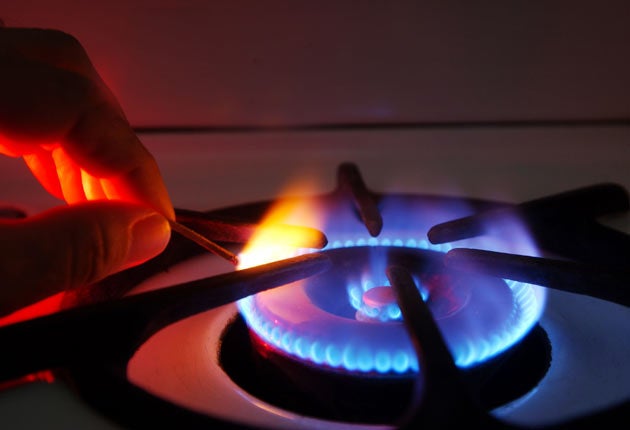Energy price rises? It's time for a heated debate

Your support helps us to tell the story
From reproductive rights to climate change to Big Tech, The Independent is on the ground when the story is developing. Whether it's investigating the financials of Elon Musk's pro-Trump PAC or producing our latest documentary, 'The A Word', which shines a light on the American women fighting for reproductive rights, we know how important it is to parse out the facts from the messaging.
At such a critical moment in US history, we need reporters on the ground. Your donation allows us to keep sending journalists to speak to both sides of the story.
The Independent is trusted by Americans across the entire political spectrum. And unlike many other quality news outlets, we choose not to lock Americans out of our reporting and analysis with paywalls. We believe quality journalism should be available to everyone, paid for by those who can afford it.
Your support makes all the difference.Soaring energy prices could be catastrophic for people facing fuel poverty. The latest hikes mean seven million people now face energy bills which add up to a tenth of their income. On Thursday EDF became the last of the big six suppliers to hike prices, announcing gas increases of 15.4 per cent and electricity rises of 4.5 per cent from 10 November.
The move means the average prike hike across the main suppliers this autumn is 14.2 per cent. That puts £161 onto the average energy bill, just when the cold weather hits and we all start ramping up our heating. It's also worth remembering that the same companies ramped up prices at the turn of the year, when home energy costs climbed 5.9 per cent or added £63 to the average bill.
Putting the two together means we've seen energy bills climb from from an average £1,069 to £1,293 within a year. That's a 21 per cent – or £224 – increase in energy prices. That's been enough to tip 840,000 more households into fuel poverty according to uSwitch, on top of the estimated six million or so who have already been struggling to pay their bills.
An alarming report from debt charity Consumer Credit Counselling Service earlier this week revealed that almost a third of people contacting it are already in fuel poverty. Around 20,000 people contacted the charity with payment problems in the first six months of the year, it said.
Their average combined gas and electricity bill was £136 a month, a significant chunk of their average monthly income of £847. The burden of energy bills left these folk £302 short of the amount they need to cover basic living expenses each month. That also leaves them some way from being able to start to repay debts totalling, on average, £15,759.
Older people struggling with rising fuel prices are often forced into a stark choice: heat or eat. The net result is often illness and in some cases, needless death, which is clearly an unacceptable situation.
The latest figures from the Department of Energy & Climate Change, published in July, put the projected fuel poverty figures slightly lower, but they are still at their highest levels since 1997. The Government has recognised the seriousness of the problem and last year announced an independent review to take a fresh look at fuel poverty, led by Professor John Hill.
The review is set to publish its interim findings next month with the final report due in early 2012. Reviews are all very well but, if uSwitch's figures are believed, there are seven million people who need help now.
What's the solution? It's possible that there are households that can cut fuel costs through energy efficiency measures. The Energy Saving Trust, for instance, has plenty of tips on its website at www.energysavingtrust.org.uk or through a free helpline on 0800 512012.
There are also a range of grants available to help hard-pressed families with home improvements that would make their property more energy efficient.
Details of all these can be found at the Energy Saving Trust's website, where you simply need to put in your postcode to find out what sort of grants are available in your area.
But the Government needs to consider stronger controls on energy companies to ensure their price rises don't force more people into making stark decisions that could prove fatal.
Professor Hill has a huge responsibility when he makes his interim report next month – I hope he rises to it.
Join our commenting forum
Join thought-provoking conversations, follow other Independent readers and see their replies
Comments